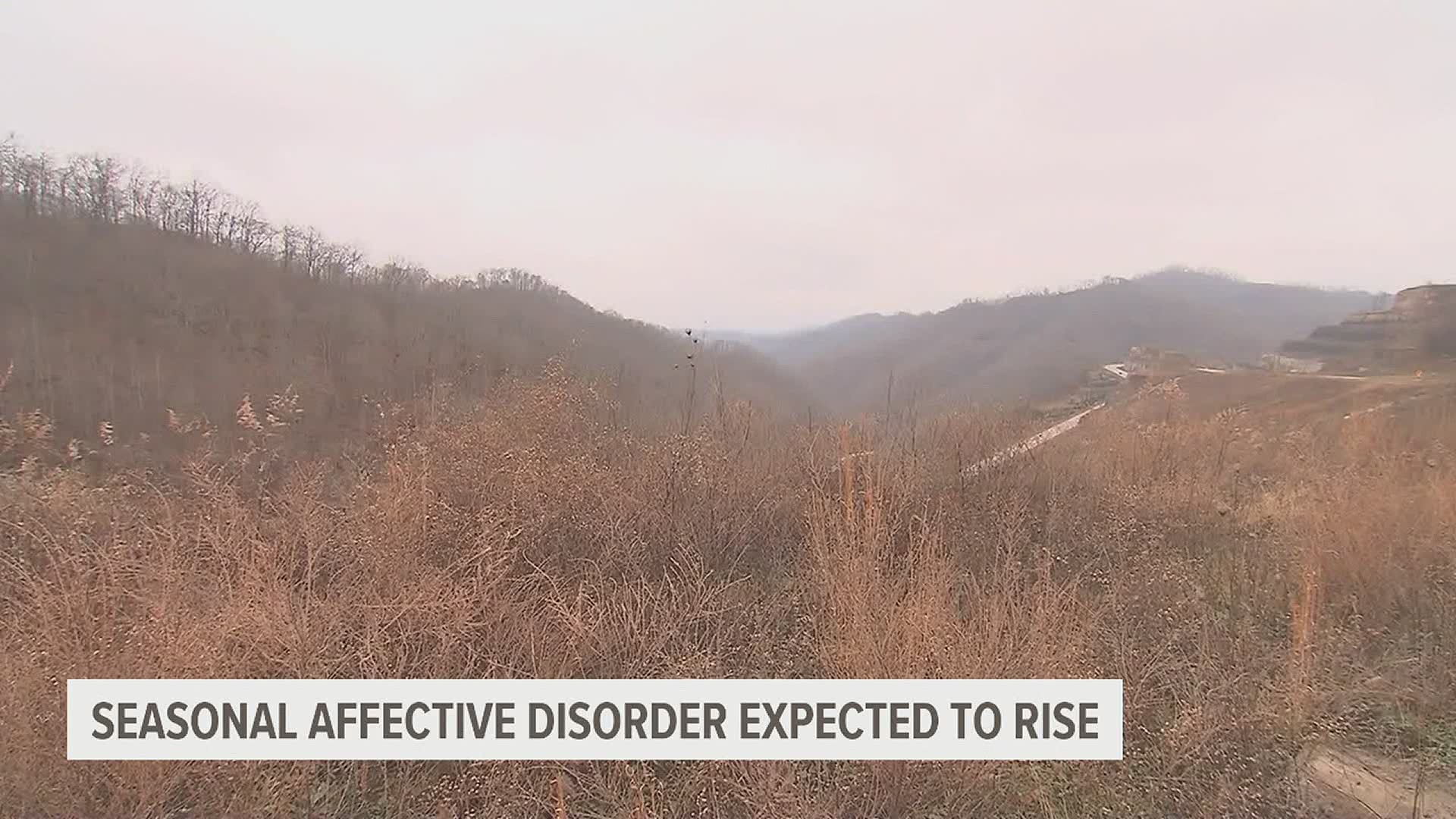YORK, Pa. — Seasonal affective disorder (SAD) is a type of depression that's related to the changes in seasons. Despite it's acronym, it is much more serious than just feeling sad. If you're like most people with SAD, your symptoms start in the fall and continue into the winter months, sapping your energy and making you feel moody. Experts fear they will see more of this than ever before, thanks to a country already dealing with increased anxiety and depression due to the COVID-19 pandemic.
Signs and symptoms of SAD may include:
- Feeling depressed most of the day, nearly every day
- Losing interest in activities you once enjoyed
- Having low energy
- Having problems with sleeping
- Experiencing changes in your appetite or weight
- Feeling sluggish or agitated
- Having difficulty concentrating
- Feeling hopeless, worthless or guilty
- Having frequent thoughts of death or suicide
So why does this happen? There are several factors including having a family history of depression, but experts say less hours of daylight, equal less sun. Reduced levels of sunlight can affect serotonin, the neurotransmitter that affects your mood. However, just because we don't live in sunny Florida, doesn't mean we are doomed.
There are many things we can do to feel better in the darker months. Doctors say light therapy works and you can find a huge variety of light lamps online, especially amazon.
Dr. Annette Nunez is a psychotherapist. She says she tells her clients that they need to shift the way they look at the situation and try to use the winter the way bears do, for self care.
"It's ok to binge on sweets and eat cupcakes and cookies and hot chocolate and sweet coffee - and its ok to binge watch Netflix on the weekend and not feel guilty about it. and i think if people were able to reframed that into this is a time for hibernation and self care, that when the new year starts its a new year and 2021 is gonna look better," said Dr. Nunez. She also said you should try getting 8-9 hours of sleep per night, plenty of physical activity and lots of fresh air. Yoga and meditation can help as well.
Dr. Nunez says if you try all of these things and still find yourself unable to get out of bed or not hungry for longer than 2 weeks, call your doctor. She also suggests trying to take advantage of telehealth, which is morce widely available now.
For more information about SAD, click here:


